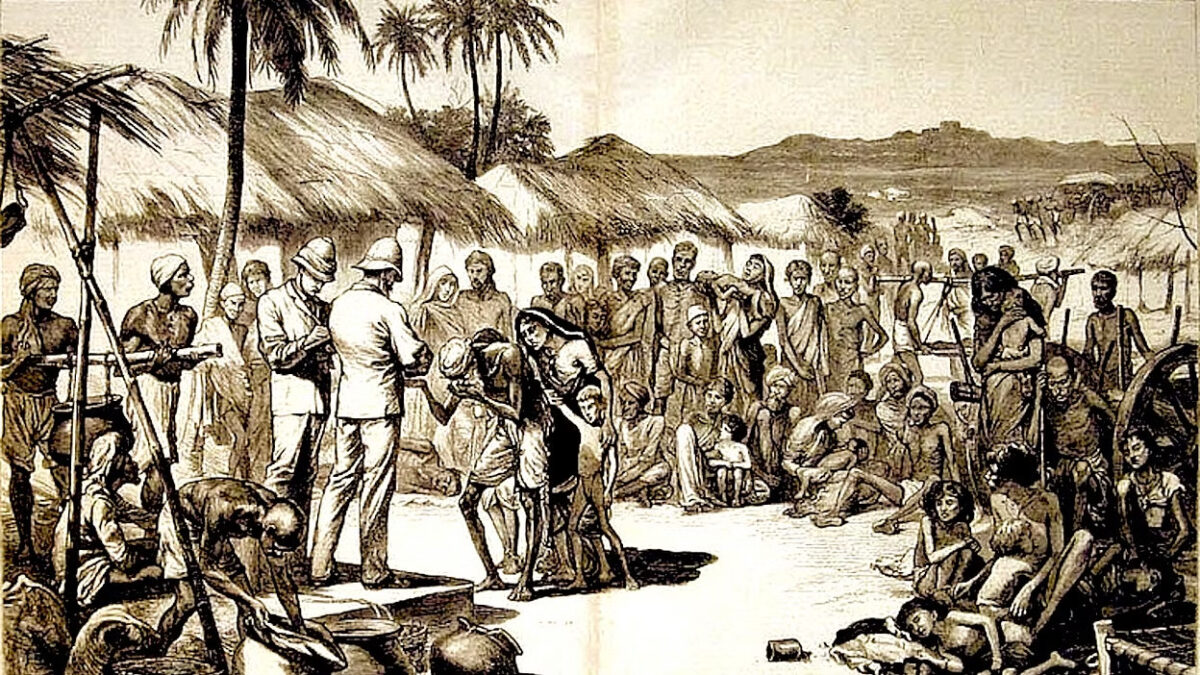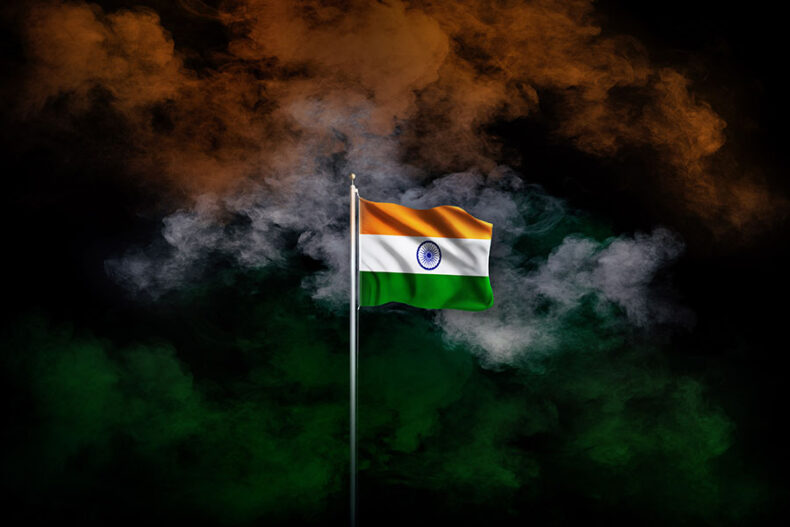Even after celebrating “Azadi ka Amrit Mahotsav” on India’s 77th Anniversary, our nation is still crippled under the shackles of existential dread.
Under the recent comments of Rashtriya Swayamsevak Sangh (RSS) chief Mohan Bhagwat, it has been a matter of contemplation that government officials are debating the change of the name of our nation from India to Bharat. “The reality is not so far,” says Chief Mohan Bhagwat where India shall soon be reborn as Bharat, as Akhand Bharat.
The matter came to a much more severe limelight when a G20 invite was addressed to the President of India as “President of Bharat”. Mohan Bhagwat’s concern regarding this change of names pertains to the thought that ‘India’ is a name given by the colonizers.
How much of this, remains true? Is it true that India was a name given by the colonizers? Is to evoke a new, renewed sense of nationality among the citizens of our country the only cause behind this effect? Is this the actual truth, or does something unwavering and unhinged lay at the core of it all?
Table of Contents
India: Colonial Tinge or Something More?
“What’s in a name? That which we call a rose, by any other name, would smell as sweet,”
As literature majors, we spend quite a lot of time analyzing the ‘significance of the title’ of a piece, a novel, a poem, or a story.
Ironically, one of the most renowned English dramatists entirely defied the primary motive of the thousands of papers written by hundreds of students of the English Department. Sardonically, he immortalized the value or rather the no-value of a name. Yet, we study names, trying to find meaning.
Nomenclatures are what distinguishes one element from the other. It is a name that defies the ties of similarity and allows one to emerge as having a unique set of skills applicable in the real world. India has been a name that we have been living with for centuries. It has come to the point where our own identity has reached a point of questionable existence.
As the Constitution of our country goes,’ India that is Bharat- a Union of States’. The Constitution of India is the world’s longest constitution for a sovereign nation. The constitution itself, states that our country is not one name, but two, India and Bharat. The RSS Chief, Mohan Bhagwat believes that the name India, is the name of the colonizers, while the reality is that this name is as old as the Greeks and Iranians.
The National Anthem of India, “Jana Gana Mana” written by Rabindra Nath Tagore, goes something like this,
Panjaba-Sindhu-Gujarata-Maratha
Dravida-Utkala-Banga
The name, India, comes from ‘Indus’, which when in Sanskrit, is called ‘Sindhu’. It can be easily identified that the name of our country is a part of not only the Indian Constitution, which is the world’s largest constitution for a sovereign nation but also part of the national anthem. Thus, in no way pertaining to the colonizers.
India’s economy heavily relies upon agriculture, in which the soil or the mitti of the nation plays an essential role in its development, which is where, Sindhu, or the Indus Valley comes into the picture. It was in the Indus Valley itself, where India laid its footstone of development and growth as the steady flow of the river water made farming and irrigation possible in the country.
The G20 Summit
While the nation has been bearing its name of India for quite some time now, it is only recently that the thought of changing it entirely forged the minds of our government officials. On closer inspection into the stimulant of this event, it all can be traced down to a tweet on Twitter, currently renamed as X (Oof! Seems like everyone wants to change their names all of a sudden) where a G20 invite was addressed to the President of India as the ‘President of Bharat’.
In the official booklet detailing the Prime Minister’s visit to Indonesia for the ASEAN meeting, an intriguing choice of nomenclature was made. Instead of referring to him by his more internationally recognized title, “Prime Minister of India,” he was referred to as the “Prime Minister of Bharat.”
This unconventional nomenclature certainly raised eyebrows and generated discussions among both domestic and international audiences.
Religiocentricism
The name Bharat has its origins in a variety of epics, legends, stories, and myths, namely the Hindu Epic: Mahabharata. The lineage of the name Bharat can be traced essentially back to the ancestors of Pandavs and Kauravs as King Bharat, the son of Dushyant and Shakuntala.
Hindu Scriptures, as they are, an entire change of the name India to Bharat, would mean that the Government’s slogan of Unity in Diversity is nothing, but a mere facade.
The Constitution of India kept in mind the notion of the diverse nature of the country and thus included in Article 1 itself, the peaceful coexistence of Bharat AND India, something that is now being challenged by government officials.
While India is misinterpreted as the language of the colonizers, removing the entire existence of one name and only retaining the one that has lineage all the way back to the Hindu scriptures, can be properly interpreted as religiocentrism.
Various instances of violence can be seen in a number of places across the country. Whether it be the disturbing brutal murder in Manipur, the open abuse of a child in front of his classmates whether in Bihar or Delhi, or the burning of age-old libraries like the Azizia Library in the name of political warfare.
The anger and rage that reside in the deepest corners of the hearts of these people have laid their stepping stones all the way back during the time of the Partition of India. The colonial hangover that is already prevalent only finds a way to spread immaculately due to such actions from government officials.
Colonial Hangover: The Great Hypocrisy
While on one hand, the RSS chief took the nation by storm by expressing his willingness to entirely change the name of the country because he thinks, it resonates with a tinge of the colonial hangover, a contrary image of the nation trying to hide its flaws with a green cloth emerged on to the surface.
In one of the biggest slum areas of Vasant Vihar, green cloth has been laid to hide the nation’s inadequacies and flaws. Situated only a few blocks away from luxury 5-star hotels, is this slum area where the poor and homeless are suffocating due to the blockage of the passageway.
The Coolie Camp in Vasant Vihar is covered with green cloth all around, while other areas of Delhi are getting a makeover with fountains springing on every new street and lights lighting up the place brightly.
Considering what was done to another slum in Vasant Vihar, the Priyanka Gandhi Camp, it can only be thought that the Coolie Camp citizens were given mercy. The entire slum was demolished with no assistance help or relocation assistance provided by the government officials whatsoever. Similar destructions took place in the RK Puram Area of Vasant Vihar.
The pretense of the government officials to change the name of the country goes to show the empty vessel that they are inside. On one hand, BJP officials in Kolkata are claiming, that once they come to power in West Bengal they will remove all the statues of foreigners, on the other, the officials are hiding away their flaws from those foreigners themselves right before the G20 Summit.

The Colonial Hangover is still very much prevalent. The change of names thus proving to show, is all a facade for the outsiders to see. A lie to be fed to foreigners to try to prove our country’s solidarity, when in reality, we are not at all independent, not at all Azad, not at all “Atmanirbhar”.













